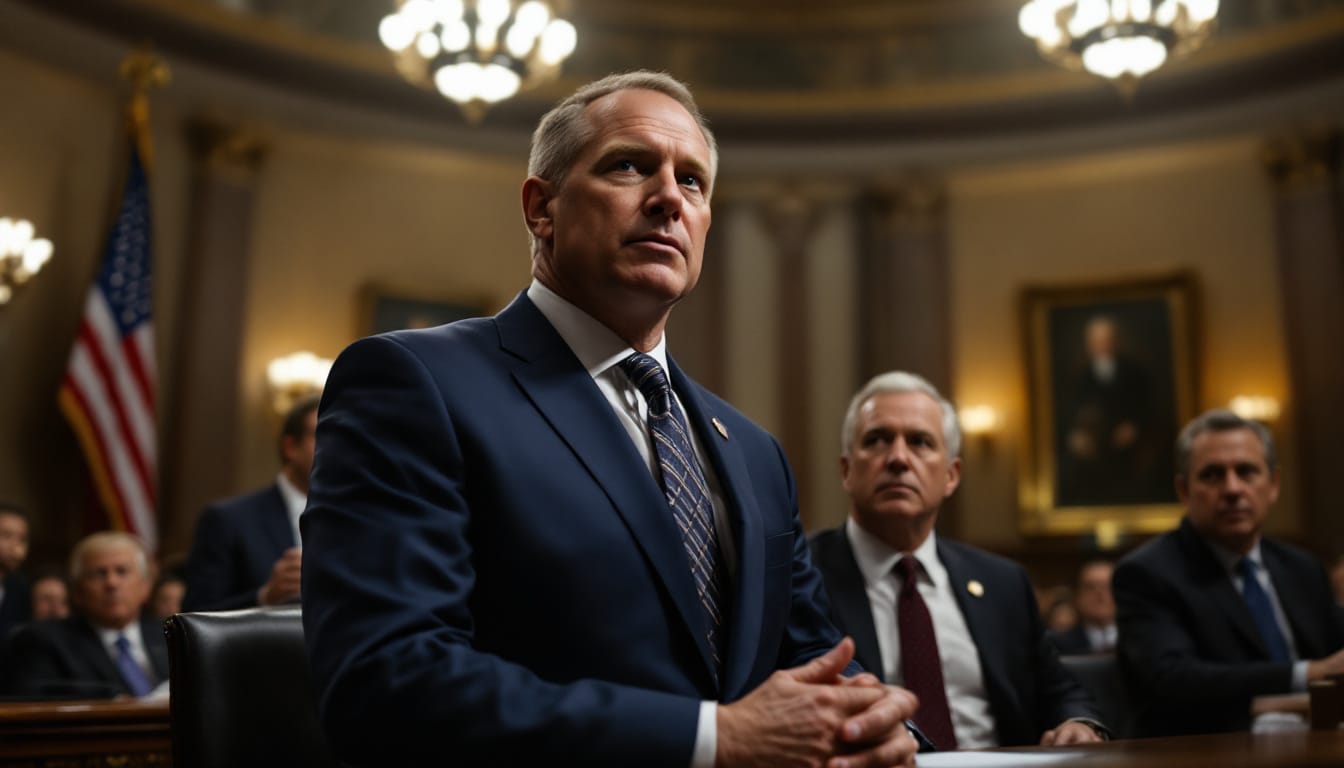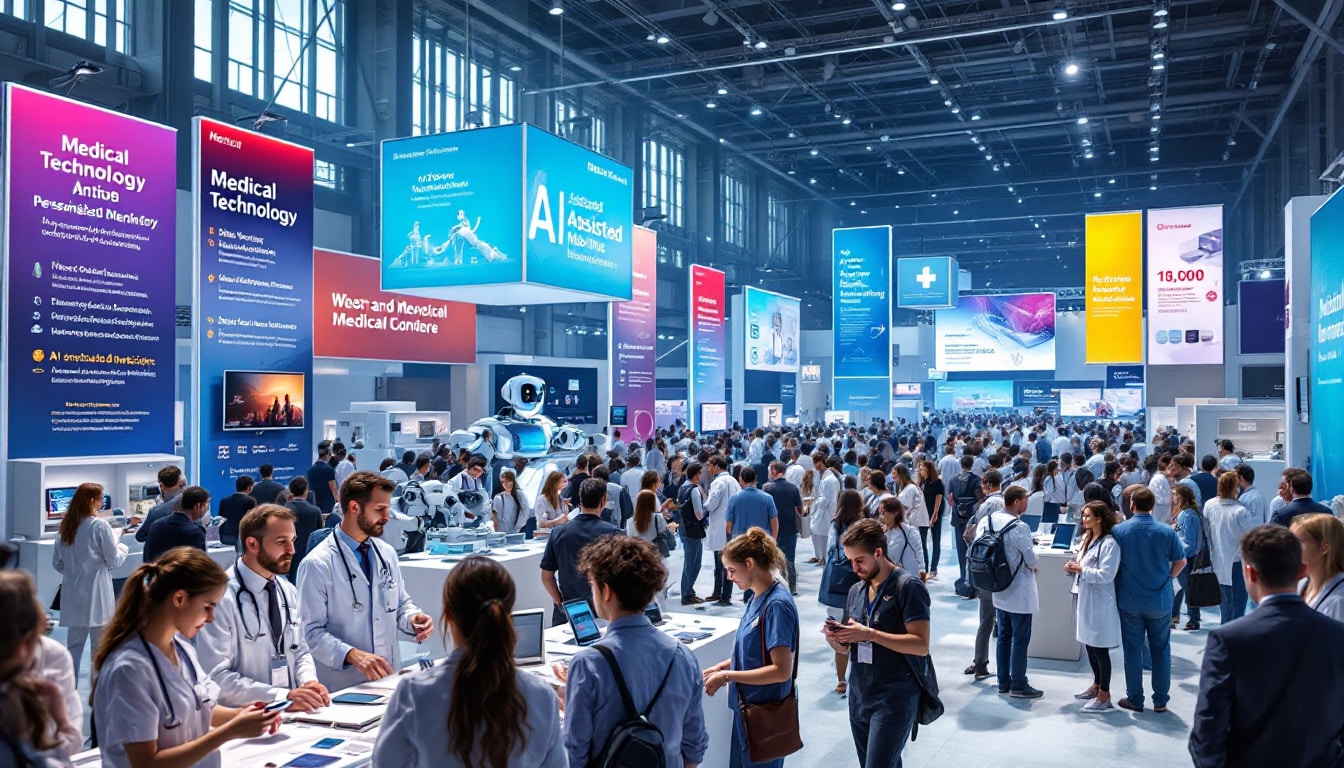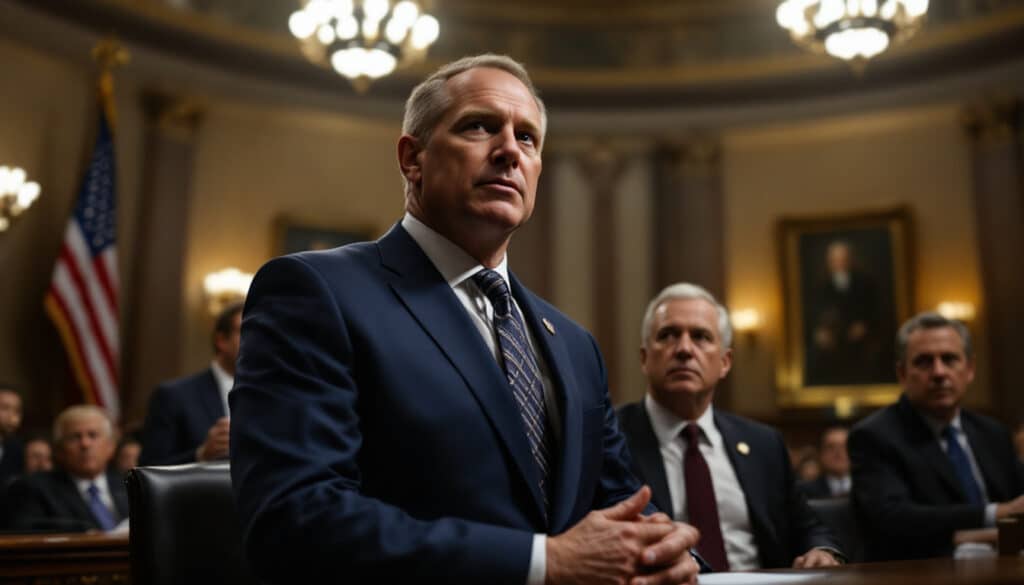Customs tariffs seriously threaten the medical industry in the United States. As a global superpower of health innovation, the United States risks losing its edge. The complex and vital supply chain is in jeopardy.
AdvaMed, one of the most influential trade groups in the sector, emphasizes the need for maximum tariff flexibility to protect essential medtech products. Supporting efforts to bring manufacturing back to the United States and remedy trade imbalances, the industry accounts for 40% of global medtech sales and supports 3 million jobs. Medtech products, essential for life, cannot be compromised by inappropriate tariff policies. Protecting this supply chain is crucial to maintaining the US position as a global leader in medical innovation.

Scott Whitaker Highlights Tariff Issues for the Medtech Industry
During his recent testimony before the Senate, Scott Whitaker, CEO of AdvaMed, highlighted the major challenges that customs tariffs pose for the American medical technology industry. According to Whitaker, these tariffs threaten the United States’ position as a “global superpower” of medical innovation. He advocated for greater tariff flexibility to protect the sector’s complex supply chain. This situation is particularly critical as medtech products are often life-and-death decisions for patients, underscoring the urgency of appropriate measures to ensure their availability and accessibility.
Whitaker also emphasized that the American medtech industry represents 40% of global sales, supports around 3 million jobs in the United States, and remains the world leader in innovation. Implementing inappropriate tariff policies could therefore jeopardize not only the national economy but also global medical advancements. To learn more about the impact of Trump’s tariffs on medtech companies, check out this article.
AdvaMed Supports Bringing Manufacturing Back to the US
AdvaMed, one of the most influential trade groups in the medtech industry, strongly supports President Donald Trump’s efforts to bring manufacturing back to the United States and correct trade imbalances. Whitaker explained that this relocation is essential to strengthen the supply chain and reduce dependence on imports, particularly from China. This strategy is even more critical as the COVID-19 pandemic has revealed the vulnerability of the United States due to excessive dependence on essential personal protective equipment.
Furthermore, AdvaMed supports a 90-day suspension of tariffs specific to each country as well as the recent agreement with China to temporarily reduce tariffs. These temporary measures are seen as a step in the right direction, but Whitaker insists on the need for sustainable solutions to ensure the industry’s resilience. To understand the risks faced by American generic drug manufacturers due to customs tariffs, check out this article.
The Complexity of the Medtech Supply Chain
The supply chain for medtech products is extremely complex, involving hundreds of components from around the world. Whitaker pointed out that moving manufacturing operations is a multi-year process subject to strict regulatory requirements, rarely encountered in other industries. This complexity makes it difficult to make rapid adjustments to costs or prices, especially since hospitals often procure these technologies through multi-year contracts with entities such as Medicare, Medicaid, and the US Department of Veterans Affairs.
Long-term contracts further complicate the industry’s ability to quickly adapt to tariff fluctuations. Increasing costs for these federal programs would, according to Whitaker, be counterproductive and could limit patient access to cutting-edge technologies. For an in-depth analysis of the impact of tariffs on medtech company outcomes, visit this link.
Call for Maximum Tariff Flexibility
Whitaker reiterated AdvaMed’s call for maximum tariff flexibility, insisting that medtech products are essential and not optional. He urged lawmakers to adopt a tariff policy that protects the industry for humanitarian reasons, as has historically been the case. This protection is vital for maintaining the US leadership in medical innovation and ensuring the continued supply of essential technologies in hospitals and clinics.
Additionally, Whitaker advocated for zero-for-zero reciprocal tariffs with each country in administrative negotiations to foster a fair and stable business environment. This approach aims to minimize disruptions in the supply chain and keep costs at a reasonable level for consumers and medical institutions. Discover how GE Healthcare adjusted its profit forecasts due to tariffs.
Impact of Tariffs on Innovation and Employment
Innovation is at the heart of the medtech industry, and any tariff hindrance could slow down crucial technological advances. Whitaker emphasized that the United States is currently the world leader in medtech innovation, and tariffs could compromise this position. By supporting flexible tariff policies, AdvaMed aims to preserve not only jobs but also investments in research and development that are essential for continuing to innovate and improve healthcare.
The American medtech industry supports approximately 3 million jobs and plays a key role in the national economy. An increase in tariffs could lead to a decrease in the competitiveness of American companies in the global market, thereby reducing job opportunities and investments in new technologies. To explore the challenges that companies like Nuro face in the medtech industry, check out this article.
Strategies to Relocate Production to the US
In light of the risks posed by tariffs, Whitaker detailed several strategies that medtech companies can adopt to relocate their production to the United States. He mentioned that it is easier and less costly to build facilities close to the US border, allowing for quick delivery of necessary supplies. This geographical proximity reduces not only shipping delays but also logistics costs while enhancing the resilience of the supply chain.
Whitaker also discussed the importance of incentive policies, such as a low corporate tax rate, appropriate incentives, accelerated regulatory policy, and reimbursements for products made in the United States. These measures can encourage more companies to invest locally and reduce their dependence on foreign suppliers. To learn more about inquiries regarding the importation of semiconductors and their threat to the medtech industry, read this article.
Consequences for Federal Programs and Public Health
Potential tariff increases would also directly impact federal health programs such as Medicare and Medicaid. Whitaker pointed out that increasing costs for these programs would be counterproductive, as it could limit patient access to essential medical technologies. Reducing tariffs would help keep the costs of these programs at a manageable level, ensuring that patients benefit from the best possible care without financial burden.
Moreover, price stability through flexible tariffs would contribute to better budgeting for hospitals and other health institutions, allowing them to allocate more resources to improving care rather than managing costs related to imports. This stability is essential to maintain the quality and efficiency of healthcare provided to citizens. To understand the impact of tariffs on the profit forecasts of medtech companies, check out this detailed article.
The Role of Congress in Securing the Medtech Industry
During the hearing, Sen. Thom Tillis, R-N.C., questioned Whitaker about the role Congress should play in eliminating the vulnerabilities revealed by the COVID-19 pandemic. Whitaker responded by stating that Congress must support policies that encourage the resilience and autonomy of the American medtech supply chain. This includes investments in local infrastructure, research and development, as well as support measures for companies wishing to relocate their production.
Congress has a crucial role to play in enacting legislation that fosters a stable and conducive business environment for innovation. By closely collaborating with groups like AdvaMed, lawmakers can develop tariff and trade policies that protect the industry while encouraging growth and innovation. For more information on initiatives to strengthen the medtech industry, visit this link.
Scott Whitaker’s testimony before the Senate highlights the critical challenges facing the American medtech industry due to current tariff policies. By calling for maximum tariff flexibility and supporting the repatriation of manufacturing to the United States, Whitaker and AdvaMed seek to preserve the US position as a global leader in medical innovation. The complexity of the supply chain, combined with the importance of federal health programs, underscores the need for a balanced and proactive approach to ensure the resilience and competitiveness of this vital sector.













